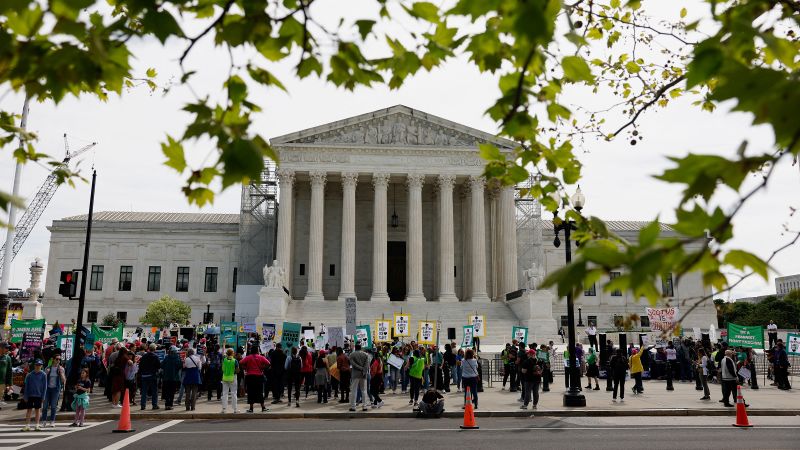The Supreme Court heard arguments in the Biden administration’s challenge to aspects of Idaho’s strict abortion ban, focusing on whether federal mandates for hospital emergency room care override abortion bans that do not exempt situations where a woman’s health is in danger but her life is not yet threatened. The administration needs the votes of two conservative justices to prevail, with Justice Brett Kavanaugh signaling support for Idaho, leaving Chief Justice John Roberts and Amy Coney Barrett as potential swing votes in the case.
Conservative justices framed the case as a federal overreach into state power, while liberals highlighted the medical emergencies faced by pregnant women not covered by Idaho’s limited exemption for life-threatening situations. US Solicitor General Elizabeth Prelogar argued that there was a conflict between Idaho’s ban and the federal law known as EMTALA but stressed that the administration is not trying to interfere with Idaho’s overall ability to criminalize abortions outside of medical emergencies.
Idaho and its defenders argue that the Biden administration is circumventing the Supreme Court’s 2022 ruling that allows states to prohibit abortion. Prelogar countered by describing Idaho as an outlier among states with abortion bans and emphasized that in narrow circumstances involving grave medical emergencies, Idaho cannot criminalize the essential care required by EMTALA. The court’s conservative justices were skeptical of Prelogar’s argument, while liberal justices signaled support for the Biden administration.
Federal conscience protections were highlighted by the solicitor general as protecting individual doctors with moral objections to abortion from being forced to perform the procedure. Justice Amy Coney Barrett was particularly focused on the conflict between Idaho’s ban and the Biden administration’s interpretation of federal emergency health care law, while liberal justices sought to understand the scope of the conflict. Idaho’s attorney Joshua Turner faced intense questioning from female justices regarding how the state’s abortion ban impacts medical emergencies where a woman’s health is at risk but her life is not in danger.
Justice Sonia Sotomayor questioned whether there was no federal law prohibiting a state from banning an abortion even if a woman’s life is at risk, while Justice Elena Kagan presented a hypothetical situation to Turner regarding a woman facing severe reproductive organ damage due to pregnancy complications. Turner’s responses to these tough questions were critiqued by the justices, highlighting the complexity of the legal and moral implications of Idaho’s abortion ban in medical emergencies. The outcome of the case may hinge on the decisions of Chief Justice Roberts and Justice Barrett as potential swing votes in the Supreme Court.


